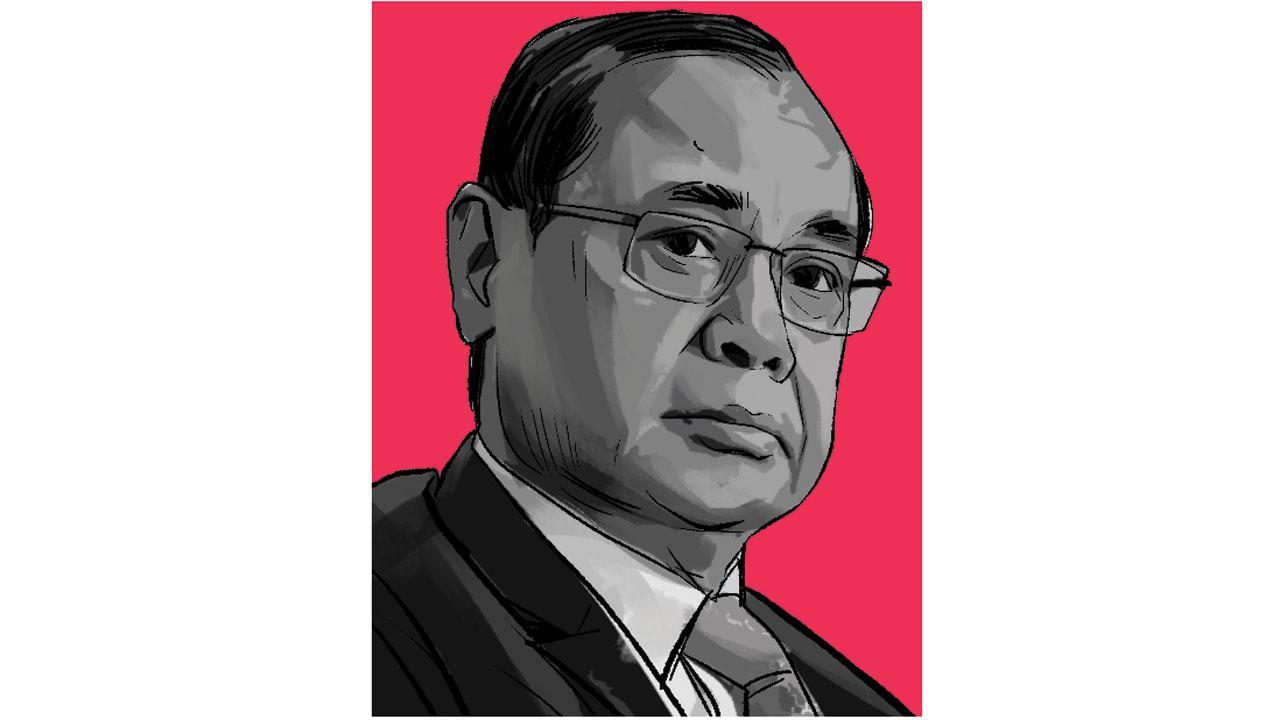'We all make mistakes. But what do you do if your hard-earned reputation of over 45 years is sought to be destroyed overnight? Are you expected to act with rationality? Is the CJI not human?'

Illustration/Uday Mohite
![]() Ranjan Gogoi, former Chief Justice of India, recently launched his autobiography, titled Justice for the Judge. It was a great affair, attended by a lot of powerful people.
Ranjan Gogoi, former Chief Justice of India, recently launched his autobiography, titled Justice for the Judge. It was a great affair, attended by a lot of powerful people.
ADVERTISEMENT
One of Mr Gogoi’s comments around the launch was with regard to an allegation of sexual harassment made by one of his junior employees. At the time Mr Gogoi had famously been part of the bench that heard the case suo moto and exonerated him, which is to say as part of the bench, he had exonerated himself. Any similarity to the Lewis Carroll poem ‘I’ll be judge, I’ll be jury,’ said cunning old Fury: ‘I’ll try the whole cause, and condemn you to death,’ purely coincidental of course.
Mr Gogoi alluded to this event in his launch interviews. “In hindsight, I should not have been a judge on the bench. We all make mistakes. No harm in accepting it.” It’s uncertain if hindsight is what’s needed to not be the judge in a case where you are accused, but anyway, Mr Gogoi then went ahead and exonerated himself for exonerating himself, known on the internet as #sorrynotsorry. “We all make mistakes. But what do you do if your hard-earned reputation of over 45 years is sought to be destroyed overnight? Are you expected to act with rationality? Is the CJI not human?”
There is a lot of work done to propagate the idea that men in power are human too, flawed and fallible. So much of cinema and literature—mostly by men—is about empathy for flawed men. So much of media and mainstream art is about creating admiration, understanding and sympathy for the behaviour of powerful men. So little of it is about the multi-dimensional humanity of others. Kate Manne, a philosophy professor at Cornell University, coined a term for this: himpathy (him+sympathy), or the knee-jerk sympathy powerful men receive in cases of sexual and other harassment. In this world powerful men are people, others are types.
Thirteen civilians were killed by security forces in Nagaland’s Mon district, last week. It was, the government said, a case of ‘mistaken identity’ due to faulty intelligence. The idea of a mistake is suffused with the sense of human error, to be forgiven, without questioning the context or system or attitudes that produces this behaviour.
It’s true, everyone is human, hence fallible. If that is so, should power be so absolute and unquestionable? We live in an era where victimhood is a currency used by those in privilege to demand we overlook their privilege, that we keep their pain, anguish and irrationality at the centre and obscure everyone else’s. In cases of sexual harassment, caste violence, political disaffection, we are made to understand only the feelings of the powerful, not the disempowered. Their story becomes the only story we are supposed to hear, disqualifying all other experiences, all other truths. We know this from our lives. We know this from our times.
It’s lonely at the top, they say, so we should feel bad for the rich and the powerful. Perhaps they should make themselves less lonely instead—by making themselves less unequal, by creating room for the humanity of others, the judged and not only, the judging. Empathy comes when there is vulnerability and woh subah kabhi toh ayegi, right? I know. Right.
Paromita Vohra is an award-winning Mumbai-based filmmaker, writer and curator working with fiction and non-fiction. Reach her at [email protected]
 Subscribe today by clicking the link and stay updated with the latest news!" Click here!
Subscribe today by clicking the link and stay updated with the latest news!" Click here!







